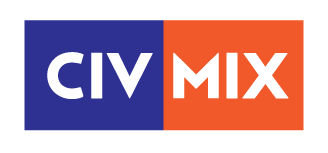 The issue of how the Opioid Settlement funds are used is an issue that I have championed since the potential of a settlement was initially discussed and an issue that I learned about from my experience as a National Conference of State Legislators (NCSL) Opioid Fellow. The ongoing opioid epidemic has devastated New York families with heartbreaking consequences, and the COVID-19 pandemic has only intensified the struggle for individuals with substance use disorders. While we have worked to increase support for individuals struggling with addiction and to better regulate prescription drugs, we must do more. Social isolation and economic hardships have taken a significant toll on many New Yorkers, but those suffering from addiction have also been cut off from in-person counseling and treatment programs during the pandemic. To expand support services, the Assembly Majority passed legislation that creates the Opioid Settlement Fund from financial compensation received from lawsuits against those that helped create the opioid epidemic (A.6395-B).
The issue of how the Opioid Settlement funds are used is an issue that I have championed since the potential of a settlement was initially discussed and an issue that I learned about from my experience as a National Conference of State Legislators (NCSL) Opioid Fellow. The ongoing opioid epidemic has devastated New York families with heartbreaking consequences, and the COVID-19 pandemic has only intensified the struggle for individuals with substance use disorders. While we have worked to increase support for individuals struggling with addiction and to better regulate prescription drugs, we must do more. Social isolation and economic hardships have taken a significant toll on many New Yorkers, but those suffering from addiction have also been cut off from in-person counseling and treatment programs during the pandemic. To expand support services, the Assembly Majority passed legislation that creates the Opioid Settlement Fund from financial compensation received from lawsuits against those that helped create the opioid epidemic (A.6395-B).
New York is slated to receive millions of dollars from opioid manufacturers and distributors as a result of legal actions brought by the state Attorney General’s Office.[1] This legislation will ensure any money the state receives from these legal settlements is only used for eligible expenditures, such as substance use disorder prevention, treatment and recovery programs, and public education campaigns to combat this epidemic. The bill also prevents these funds from being used to supplant or replace existing state or federal funds that would be used for prevention, treatment, and recovery programs or services. While we cannot bring back the lives lost to the opioid epidemic, the Assembly Majority is committed to expanding New York’s prevention and support programs and helping individuals who are struggling with substance use disorders.
In addition, the bill would create an Opioid Dashboard to keep the public and policymakers informed in a transparent manner of the settlements that are approved and how the funding is distributed. I believe this effort, which I suggested to my colleague in the Assembly, Carrie Woerner, sets this apart from settlements of the past such as the tobacco settlement. This effort, suggested by the Pew Charitable Trust, is a big step toward transparency and accountability when it comes to the Opioid Settlement Fund and I look forward to the good work this fund will accomplish.


Recent Comments